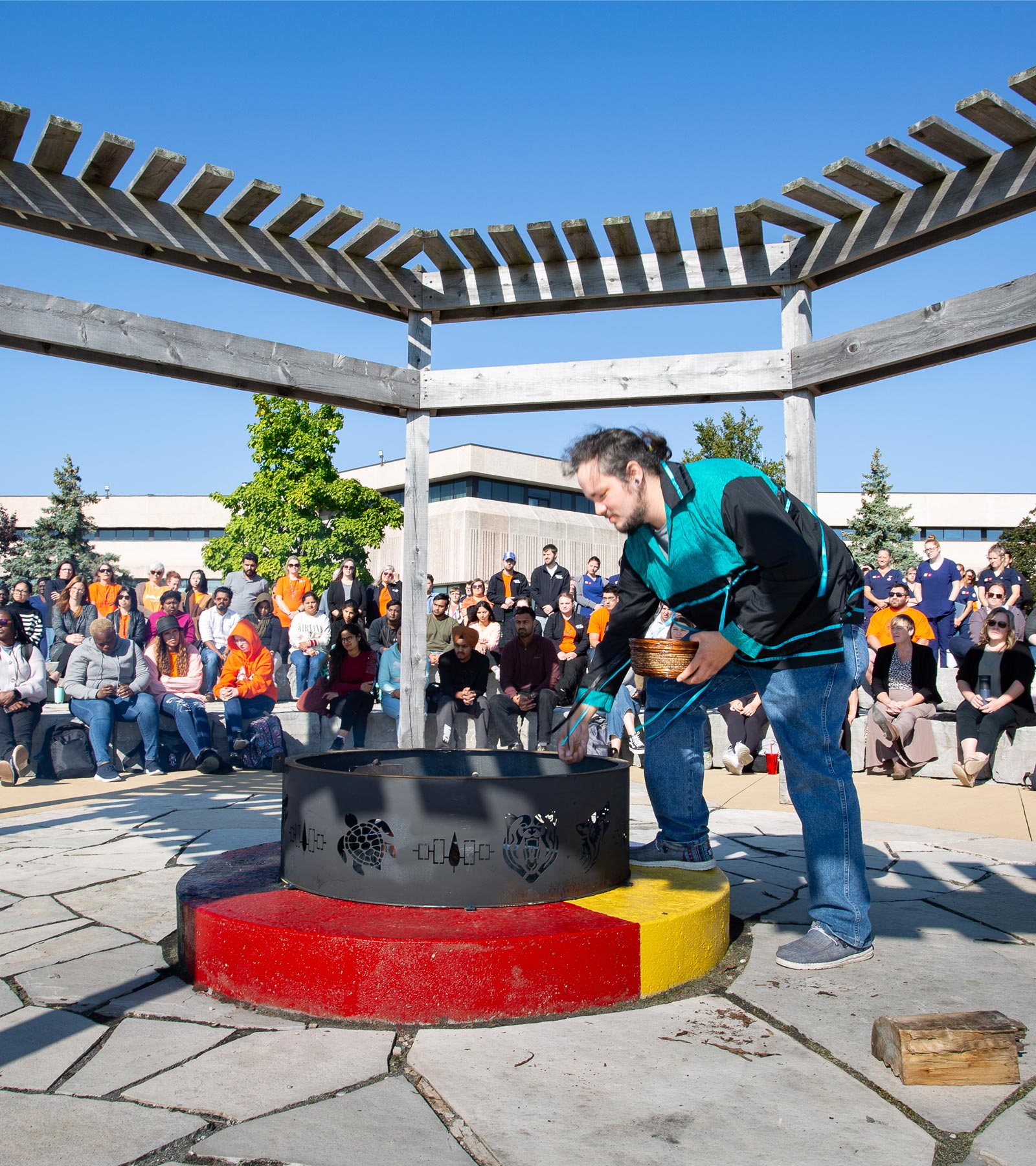Truth and Reconciliation Week
In recognition of the history and legacy of residential schools in Canada, the federal government passed legislation designating September 30 as the National Day for Truth and Reconciliation, also known as Orange Shirt Day. The day honours the children who never returned home and Survivors of residential schools, as well as their families and communities.
The college also recognizes the National Centre for Truth and Reconciliation’s (NCTR) Truth and Reconciliation Week. During this week, Loyalist College will memorialize the lives of the lost children by hosting events and providing resources about the legacy of Canada’s Indian Residential School System, decolonization and the inception of Orange Shirt Day itself.
Loyalist encourages all students, faculty and staff to participate in these events and join the conversation. Learning and commemorating the truth of our history from First Nations, Métis, and Inuit knowledge keepers is an important part of the reconciliation process.


